
Speakers at the Institutional Web Management Workshop 2009
Note that RSS feeds of the speakers and workshop facilitators are available.
Plenary Speakers
Details of the 10 plenary speakers at the Institutional Web Management Workshop (IWMW) 2009 event are given below.
 Paul Boag describes himself as a user experience
designer. He is a founding partner of Web design agency Headscape, runs the boagworld.com community for people
who run Web sites, and is the author of many articles (for the
likes of .net magazine and Think Vitamin). Paul is a charismatic
and entertaining speaker (e.g. .net magazine podcast, Refresh06 and Web2Live).
Paul Boag describes himself as a user experience
designer. He is a founding partner of Web design agency Headscape, runs the boagworld.com community for people
who run Web sites, and is the author of many articles (for the
likes of .net magazine and Think Vitamin). Paul is a charismatic
and entertaining speaker (e.g. .net magazine podcast, Refresh06 and Web2Live).
Paul has worked extensively in the higher education sector for clients such as; City University, Brunel University, JISC and the Universities of Portsmouth, Brighton, Southampton and Lancaster.
Paul also has significant experience in running online communities and has done so as far back as 1995 when he was one of the original community leaders of geocities. He wrote his dissertation on virtual communities and the disabled back in 1994.
Paul gave a plenary talk entitled "Making your killer applications... killer!" and facilitated a parallel session entitled "Twittering Techniques".
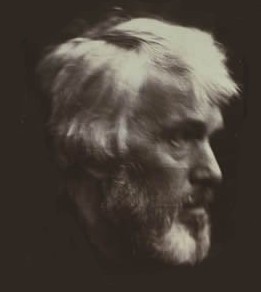 James Currall is a
statistician who has always worked in multi-disciplinary
environments. He has been involved in the support of software,
ICT planning and user support and training at the University of
Glasgow for nearly 20 years.
His main job currently is as Director of Information Strategy
where he interacts with records managers, archivists, librarians,
information technologists, academics and university managers.
From a position of being none of the above, James has on a number
of occasions been described as an iconoclast as he does not hold
dear much of the 'baggage' that these professions have
accumulated through time. For two years he was on secondment to
the University Learning and
Teaching Centre, transforming the support of the University
Virtual Learning Environment (Moodle) from a tool for enthusiasts
into a well supported and managed service, during which time he
was very much involved in the management and strategic planning
of ICT in Learning and Teaching.
James Currall is a
statistician who has always worked in multi-disciplinary
environments. He has been involved in the support of software,
ICT planning and user support and training at the University of
Glasgow for nearly 20 years.
His main job currently is as Director of Information Strategy
where he interacts with records managers, archivists, librarians,
information technologists, academics and university managers.
From a position of being none of the above, James has on a number
of occasions been described as an iconoclast as he does not hold
dear much of the 'baggage' that these professions have
accumulated through time. For two years he was on secondment to
the University Learning and
Teaching Centre, transforming the support of the University
Virtual Learning Environment (Moodle) from a tool for enthusiasts
into a well supported and managed service, during which time he
was very much involved in the management and strategic planning
of ICT in Learning and Teaching.
James is also a Senior Research Fellow in the Humanities Advanced Technology and Information Institute (HATII), where he has, for the last ten years, been developing applied research into information issues drawing on his service and strategic experience and also more theoretical work on the nature of digital objects and the problems associated with their management, security and retention. James has been involved with the highly successful Glasgow MSc course in Information Management and Preservation since its inception, in which he teaches about the transition from storage of information on physical to digital media, the management and preservation of digital materials, information security, the role of numbers as information and a variety of other topics including risk and information management as an investment. In this latter context he was the Project Director of the espida project which developed a sustainable business-focussed model for digital preservation.
James gave a plenary talk entitled "What is the Web?".
Dave Flanders is a programme manager at JISC where he works as part of the Information Environment team. Previously he has worked at the University of London and British Library in building cutting edge technologies specific to teachers, researchers, curators, librarians, administrators and learners. His experience working as developer, usability expert and manager provides a unique perspective on how innovation occurs across teams in the modern Web Environment. David will be talking on innovation and why it is essential (especially in times of recession) for institutions to take risks.
Dave gave a plenary talk entitled "Agile Prototyping in Academia" via a pre-recorded presntation.
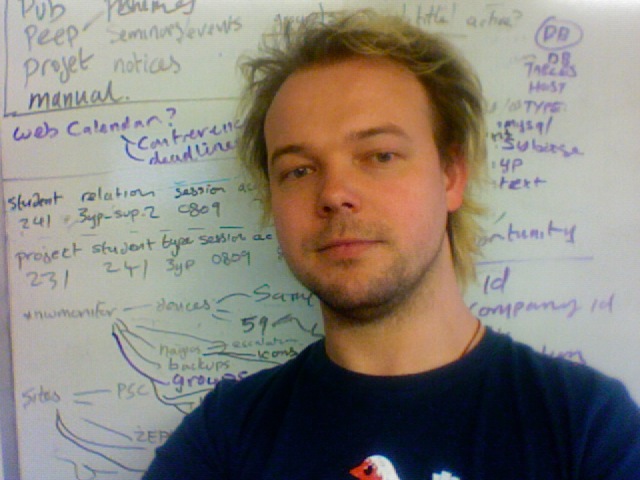 Christopher Gutteridge has been running the Web
Systems for the School of Electronics and Computer Science at the
University of Southampton, since 1997 and still isn't bored. He
is also lead developer of the award winning EPrints repository
software, used by hundreds of organisations. He strongly believes
that tedious work should be done by computers, not people.
Christopher Gutteridge has been running the Web
Systems for the School of Electronics and Computer Science at the
University of Southampton, since 1997 and still isn't bored. He
is also lead developer of the award winning EPrints repository
software, used by hundreds of organisations. He strongly believes
that tedious work should be done by computers, not people.
Christopher gave a plenary talk entitled "Lightweight Web Management".
David Harrison is Assistant Director of Information Services at Cardiff University with responsibility for Strategy and Engagement. He had previously been a Director and a Head of Service at two other universities. He is also a past-Chair of the Universities and Colleges Information Systems Association (UCISA) and CEO of Welsh Networking.
He has an interest in how emergent technologies from external providers (especially Web 2.0 tools) can be accommodated within traditional service delivery models but more especially he is interested in the cultural change agenda that needs to be considered in ensuring successful implementation and take-up of new technologies. In this, the role of enablement and education become of paramount importance, as does the concept of partnership working both within and outside the enterprise.
David gave a plenary talk entitled "Servicing 'Core' and 'Chore': A framework for understanding a Modern IT Working Environment" with Joe Nicholls.
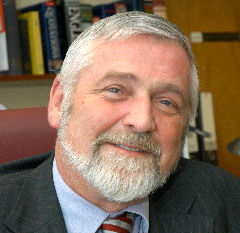 Derek Law has worked in several
British universities and published and spoken at conferences
extensively. Most of his work has been to do with the development
of networked resources in higher education and with the creation
of national information policy. This has been combined with an
active professional life in professional organisations related to
librarianship and computing. A committed internationalist he has
been involved in projects and research in over forty countries.
He was awarded the Barnard prize for contributions to Medical
Informatics in 1993, Fellowship of the Royal Society of Edinburgh
in 1999, an honorary degree by the Sorbonne in 2000, the IFLA
medal in 2003, Honorary Fellowship of CILIP in 2004 and was an
OCLC Distinguished Scholar in 2006. He is currently Chair of the
new JISC Services Management Company and Programme Consultant for
the Libraries of the Future Horizon Scan.
Derek Law has worked in several
British universities and published and spoken at conferences
extensively. Most of his work has been to do with the development
of networked resources in higher education and with the creation
of national information policy. This has been combined with an
active professional life in professional organisations related to
librarianship and computing. A committed internationalist he has
been involved in projects and research in over forty countries.
He was awarded the Barnard prize for contributions to Medical
Informatics in 1993, Fellowship of the Royal Society of Edinburgh
in 1999, an honorary degree by the Sorbonne in 2000, the IFLA
medal in 2003, Honorary Fellowship of CILIP in 2004 and was an
OCLC Distinguished Scholar in 2006. He is currently Chair of the
new JISC Services Management Company and Programme Consultant for
the Libraries of the Future Horizon Scan.
Derek gave a plenary talk entitled "Headlights on Dark Roads".
David Newman is a Lecturer in Information Systems in the Queen's University Management School. At Queen’s he has researched groupware use in co-operative learning, critical thinking in online and face-to-face discussions, and the use of the Internet by community groups. He ran a €0.5 million cross-border research project into electronic public consultation, and then took part in the team evaluating the Irish Parliament's pilot e-consultation on the Broadcasting Bill. He is just starting a new European project which will get thousands of young people discussing Internet governance on their own web 2.0 sites, then collect their creative ideas and feed them to national and European policy-makers.
David gave a plenary talk entitled "Hub Websites for Youth Participation".
Joe Nicholls is a Principal Consultant in the Strategy and Enablement Group; part of the Information Services Directorate at Cardiff University. He has over 20 years experience in Higher Education, with a background in Psychology, Human-Computer Interaction, Learning Technologies and Web related services. His current work focuses on identifying technologies and methodologies that can be employed to improve the awareness, access to, and use of University services. He is particularly interested in the process of gathering and managing service requirements, the educational role of service providers and the potential of enterprise architecture as an approach to enabling organisational change.
Joe gave a plenary talk entitled "Servicing 'Core' and 'Chore': A framework for understanding a Modern IT Working Environment" with David Harrison.
 Michael
Smethurst is a Senior Information Architect at BBC Audio
and Music interested in building highly linked data driven
websites that are accessible for people, machines and search engines.
Michael
Smethurst is a Senior Information Architect at BBC Audio
and Music interested in building highly linked data driven
websites that are accessible for people, machines and search engines.
Michael gave a plenary talk entitled "How the BBC make Web sites" with Matthew wood.
Matthew Wood is Head of Software Engineering and Architecture at BBC Audio and Music. He runs a team of software engineers and client side developers and likes making things.
Matthew gave a plenary talk entitled "How the BBC make Web sites" with Michael Smethurst.
Organising Committee
 Marieke Guy is a
research officer in the Community and Outreach Team at
UKOLN. She has recently worked on
the Good APIs project, which aimed to provide JISC and the sector
with information and advice on the factors that encourage use of
APIs. Last year she was involved in the JISC PoWR (Preservation
of Web Resources) project.
Marieke Guy is a
research officer in the Community and Outreach Team at
UKOLN. She has recently worked on
the Good APIs project, which aimed to provide JISC and the sector
with information and advice on the factors that encourage use of
APIs. Last year she was involved in the JISC PoWR (Preservation
of Web Resources) project.
Since returning to work after her third lot of maternity leave (!) Marieke has become a remote worker and is the remote worker champion at UKOLN. In this role has worked on a number of initiatives aimed specifically at remote workers and written several articles on remote working and related technologies. She maintains a blog entitled Ramblings of a Remote Worker.
Marieke chaired the day 1 afternoon session.
Marieke can be contacted using m.guy@ukoln.ac.uk. Her Twitter id is mariekeguy.
 Brian Kelly is UK Web
Focus - a post funded by the JISC and
MLA
which provides advice and support to the UK Higher and Further
Education communities and the museums, libraries and archives
sector on Web issues. Brian is based at UKOLN.
Brian Kelly is UK Web
Focus - a post funded by the JISC and
MLA
which provides advice and support to the UK Higher and Further
Education communities and the museums, libraries and archives
sector on Web issues. Brian is based at UKOLN.
Brian's interests include Web standards, Web accessibility, quality assurance for Web services and innovative Web developments, including collaborative Web tools.
Brian chaired the day 3 workshop conclusions and facilitated a parallel session entitled "Using The Social Web To Maximise Access to Resources".
Brian can be contacted using b.kelly@ukoln.ac.uk. His Twitter id is briankelly.
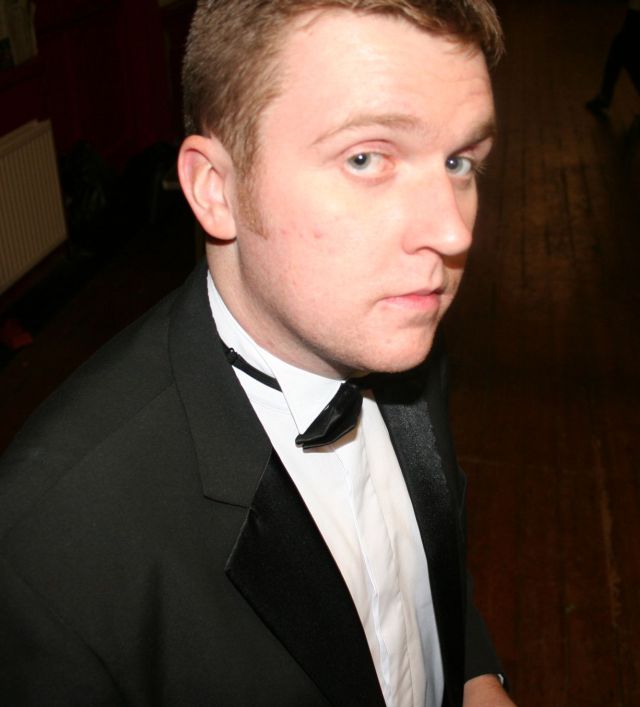 Mike Nolan is Head of
Web Services at Edge Hill University where he is responsible for
development of external Web sites and a portal service for staff and students.
Mike Nolan is Head of
Web Services at Edge Hill University where he is responsible for
development of external Web sites and a portal service for staff and students.
Michael regularly posts about HE web development topics on the Edge Hill Web Services blog and is a regular participant (and hence speaker!) at BarCamps around the country.
Mike chaired the final morning session and faciliated the Developer's Loungs show and tell session.
Mike can be contacted using Michael.Nolan@edgehill.ac.uk. His Twitter id is MikeNolan.
 Alison Wildish is
an advocate of institutions embracing third party services to
support their marketing / communications initiatives and has an
active interest in the opportunities offered by personalisation
and user owned technologies. Heading up the Web Services team at
the University of Bath she manages the central Web team and is
responsible for the strategic direction of University Web
services. She formerly held the same position at Edge Hill
University where she led projects which include; the University portal project and the
development of the Applicant
Community Web site (winner of a UCISA best practice award).
Alison blogs at blogs.bath.ac.uk/webservices/.
Alison Wildish is
an advocate of institutions embracing third party services to
support their marketing / communications initiatives and has an
active interest in the opportunities offered by personalisation
and user owned technologies. Heading up the Web Services team at
the University of Bath she manages the central Web team and is
responsible for the strategic direction of University Web
services. She formerly held the same position at Edge Hill
University where she led projects which include; the University portal project and the
development of the Applicant
Community Web site (winner of a UCISA best practice award).
Alison blogs at blogs.bath.ac.uk/webservices/.
Alison was part of the organising committee but is unable to attend.
Alison can be contacted using a.wildish@bath.ac.uk. Her Twitter id is AlisonWildish.
Local Organising Committee
 Keith Brooke has worked
for the University of Essex since 1998, first as Web Officer,
then as Web Support Manager, and now as Web and Learning
Technology Manager. He is currently responsible for teams
covering Web development, training, support and learning
technology. As if that wasn't enough, he also teaches creative
writing in the University's Literature department, using a mix of
traditional classroom work, workshopping, e-mail, online
resources and Facebook silliness. Keith has recently published
his fifth science-fiction novel: The Accord.
Keith Brooke has worked
for the University of Essex since 1998, first as Web Officer,
then as Web Support Manager, and now as Web and Learning
Technology Manager. He is currently responsible for teams
covering Web development, training, support and learning
technology. As if that wasn't enough, he also teaches creative
writing in the University's Literature department, using a mix of
traditional classroom work, workshopping, e-mail, online
resources and Facebook silliness. Keith has recently published
his fifth science-fiction novel: The Accord.
Keith chaired the day 2 afternoon back-end session.
Keith can be contacted using kbrooke@essex.ac.uk. His Twitter id is keithbrooke.
 Debbie
Nicholson has worked in Web and Learning Technology
(WaLT) at the University of Essex for 8 years as a Web Developer,
and more recently as WaLT Project Manager. Debbie is currently
project managing the relocation of all the University
Professional Service web content from individual office based
sites, to audience based content incorporated in to the corporate
site and design.
Debbie
Nicholson has worked in Web and Learning Technology
(WaLT) at the University of Essex for 8 years as a Web Developer,
and more recently as WaLT Project Manager. Debbie is currently
project managing the relocation of all the University
Professional Service web content from individual office based
sites, to audience based content incorporated in to the corporate
site and design.
Debbie chaired the day 2 morning session.
Debbie can be contacted using debbie@essex.ac.uk.
Workshop Facilitators
Details of the 22 workshop facilitators at the Institutional Web Management Workshop (IWMW) 2009 event are given below.
 Russell Allen is the
Project Manager for the University of Bradford's Portal and Web
CMS projects. Russell has spent the last sixteen years as a
project manager delivering non-succession funded IT innovation
and development projects in both public and private sector
organisations. Projects have included implementing the University
of Sheffield's career management skills Web site, on-line remote
training for under-employed graduates in recruitment agencies,
setting up community IT resources via the government's UK Online
programme and developing community engagement projects via the
e-citizen and e-government programs. Funders have included HEFC,
DFES, ESF, SRB and lottery funding. His current job at the
University of Bradford is to deliver a Web CMS, amongst other
things, as part of the University's e-strategy.
Russell Allen is the
Project Manager for the University of Bradford's Portal and Web
CMS projects. Russell has spent the last sixteen years as a
project manager delivering non-succession funded IT innovation
and development projects in both public and private sector
organisations. Projects have included implementing the University
of Sheffield's career management skills Web site, on-line remote
training for under-employed graduates in recruitment agencies,
setting up community IT resources via the government's UK Online
programme and developing community engagement projects via the
e-citizen and e-government programs. Funders have included HEFC,
DFES, ESF, SRB and lottery funding. His current job at the
University of Bradford is to deliver a Web CMS, amongst other
things, as part of the University's e-strategy.
Russell facilitated a parallel session entitled "Exposition, Cliffhanger, Resolution" with Claire Gibbons and a parallel session entitled "The Anti-Portal: mashup and forget it" with Jeremy Speller.
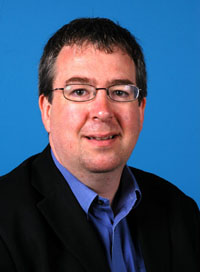 Miles Banbery is the Web
Editor at the University of Kent. He manages the Web Content and
Editorial Team within Communications & Development at the
University of Kent. Communications & Development's remit
covers internal communications, corporate publications (largely
student recruitment support), congregations (graduation
ceremonies) and events, alumni relations, press and media
relations and development and fund raising.
Miles Banbery is the Web
Editor at the University of Kent. He manages the Web Content and
Editorial Team within Communications & Development at the
University of Kent. Communications & Development's remit
covers internal communications, corporate publications (largely
student recruitment support), congregations (graduation
ceremonies) and events, alumni relations, press and media
relations and development and fund raising.
Miles chaired the day 2 afternoon front-end session.
Miles can be contacted using M.E.C.Banbery@kent.ac.uk. His Twitter id is mecb.
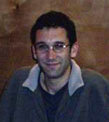 Talat
Chaudhri is a Research Officer in the Research and
Development Team at UKOLN. He is responsible for the Application Profiles
Support project, which seeks to support and co-ordinate the
development and implementation of the Dublin Core Application
Profiles funded by JISC. These are SWAP,
GAP,
IAP,
TBMAP,
LMAP and SDAP. The
project is currently focussed on developing methodologies for the
evaluation of these application profiles, particularly through
practical user testing in collaboration with the IEMSR and
IE Demonstrator projects.
Talat
Chaudhri is a Research Officer in the Research and
Development Team at UKOLN. He is responsible for the Application Profiles
Support project, which seeks to support and co-ordinate the
development and implementation of the Dublin Core Application
Profiles funded by JISC. These are SWAP,
GAP,
IAP,
TBMAP,
LMAP and SDAP. The
project is currently focussed on developing methodologies for the
evaluation of these application profiles, particularly through
practical user testing in collaboration with the IEMSR and
IE Demonstrator projects.
Talat co-facilitated a parallel session entitled "Hands-on prototyping for (meta)data structures" with Emma Tonkin and Alexey Strelnikov.
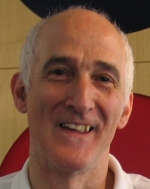 Barry
Cornelius has been with Computing Services at the
University of Oxford since March 2005. He works for the
Information Services team of OUCS (which is led by Sebastian
Rahtz). He is mainly involved in supporting various web
applications for OUCS and for developing OXITEMS, a newsfeed
system for Oxford University. He was the technical brains behind
the successful launch of Oxford's site in iTunes U.
Barry
Cornelius has been with Computing Services at the
University of Oxford since March 2005. He works for the
Information Services team of OUCS (which is led by Sebastian
Rahtz). He is mainly involved in supporting various web
applications for OUCS and for developing OXITEMS, a newsfeed
system for Oxford University. He was the technical brains behind
the successful launch of Oxford's site in iTunes U.
Barry facilitated a parallel session entitled "Time for iTunes U".
 Richard
Davis is Development Manager in the Digital Archives
Department at the University of London Computer Centre. Since
joining ULCC in 1997, he has contributed to a wide range of
Web-based preservation and repository projects for the University
and the JISC, as well as external clients. Projects include
JISC-PoWR
(Preservation of Web Resources), SNEEP
(Social Networking Extensions for EPrints), CLASM
(Copyright Licensing Applications with SWORD for Moodle),
NDAD
(National Digital Archive of Datasets) and Linnean Online. Richard also
set up a departmental
blog in 2007, and is working with colleagues to develop
social networking features for the Digital Preservation Training
Programme (DPTP).
Richard
Davis is Development Manager in the Digital Archives
Department at the University of London Computer Centre. Since
joining ULCC in 1997, he has contributed to a wide range of
Web-based preservation and repository projects for the University
and the JISC, as well as external clients. Projects include
JISC-PoWR
(Preservation of Web Resources), SNEEP
(Social Networking Extensions for EPrints), CLASM
(Copyright Licensing Applications with SWORD for Moodle),
NDAD
(National Digital Archive of Datasets) and Linnean Online. Richard also
set up a departmental
blog in 2007, and is working with colleagues to develop
social networking features for the Digital Preservation Training
Programme (DPTP).
Before joining ULCC, Richard had a varied IT career at the Metropolitan Police, ICL and the Forensic Science Service as mainframe database developer, helpdesk manager, and Web developer. It was at the FSS in 1996 that he first set up a pilot intranet, and developed Web-based library and information systems.
Richard is currently studying part time on the MSc E-learning programme at Edinburgh University, and is actively interested in the myriad educational possibilities of Web 2.0 and Social Networking, while ever mindful of the preservation issues too.
Richard facilitated a parallel session entitled "Practical blog Preservation".
 Mike
Ellis worked for 7 years as Head of Web for the National
Museum of Science and Industry, UK, which comprises the Science
Museum in London, Media Museum in Bradford and Railway Museum in
York. He now works for Eduserv, a Bath-based not-for-profit IT
services organisation with a charitable mission to realise the
benefits of ICT for learners and researchers. Mike's interests
are in UX, user generated content, ubiquitous computing and
innovation and how to lever these for maximum benefit in cultural
institutions.
Mike
Ellis worked for 7 years as Head of Web for the National
Museum of Science and Industry, UK, which comprises the Science
Museum in London, Media Museum in Bradford and Railway Museum in
York. He now works for Eduserv, a Bath-based not-for-profit IT
services organisation with a charitable mission to realise the
benefits of ICT for learners and researchers. Mike's interests
are in UX, user generated content, ubiquitous computing and
innovation and how to lever these for maximum benefit in cultural
institutions.
Mike co-facilitated a parallel session entitled "Mashups Round the Edges" with Tony Hirst.
 Claire
Gibbons is now the Web Manager for the University of
Bradford (previously the Web Officer since September 2000),
working within the department of Marketing and Communications,
and responsible for the management of the University's new Web
Team and the new content management system –
TerminalFour’s SiteManager. Claire is responsible for the
University's 'corporate Web' and works closely with departments
and Schools to ensure consistency of University brand and message
as well as compliance with standards and legislation, such as
SENDA and the University's own Code of Practice for Web Based
Materials. Claire has recently completed the Chartered Management
Institute Diploma in Management - which sparked her slightly
obsessive interest in organisational culture, change management
and 'people' and 'behaviours'. Claire has been a member of the
Web CMS Project core team since the inception of the project in
October 2005.
Claire
Gibbons is now the Web Manager for the University of
Bradford (previously the Web Officer since September 2000),
working within the department of Marketing and Communications,
and responsible for the management of the University's new Web
Team and the new content management system –
TerminalFour’s SiteManager. Claire is responsible for the
University's 'corporate Web' and works closely with departments
and Schools to ensure consistency of University brand and message
as well as compliance with standards and legislation, such as
SENDA and the University's own Code of Practice for Web Based
Materials. Claire has recently completed the Chartered Management
Institute Diploma in Management - which sparked her slightly
obsessive interest in organisational culture, change management
and 'people' and 'behaviours'. Claire has been a member of the
Web CMS Project core team since the inception of the project in
October 2005.
Claire facilitated a parallel session entitled "Exposition, Cliffhanger, Resolution" with Russell Allen.
 Due to
illness Colin Hamilton was unable to attend IWMW 2009.
Due to
illness Colin Hamilton was unable to attend IWMW 2009.
Colin Hamilton has been working at the
University of Strathclyde since 2001 as a Web developer within
the Central University Webteam (all 3 of us). His job has now
moved towards focusing on Web analytics and how it can be used to
guide the development of the Universitys web presence to support
university, faculty and department goals and make the Web site
more accountable and effective.
Colin facilitated a parallel session entitled "Using Web Analytics to guide Web development and support your Department's goals".
Tony Hirst is an itinerant academic in the Department of Communication and Systems, and member of the Socialearn core project team. He blogs regularly about educational Web technologies and RSS feed powered mashups at http://ouseful.info (although most of his readers would being admit to being confused by most of the posts, most of the time).
Tony facilitated a parallel session entitled "Mashups Round the Edges" with Mike Ellis.
Dan Jackson is the Web Team Leader at City University London. He is part of a small team responsible for the maintenance and development of the University Web site, CMS and related systems and applications. During his time at the University Dan has overseen a site redesign and an accessibility audit. He has over 7 years experience in Web development, and his interests include Web standards, usability, accessibility, client-side coding and PHP.
Dan facilitated a parallel session entitled "An Introduction to WAI-ARIA".
Andrew Male is the Web Development Manager in Web Services at the University of Bath. Over the last 3 years he has managed the formation of the development capabilities of Web Services.
Andrew is interested in personal and team productivity, which has led to the introduction the Scrum development framework in Web Services.
Andrew facilitated a parallel session entitled "Using Scrum: Sprints not Marathons.
 Janet McKnight is a
Web developer at Oxford University Computing Services. She is one
of the core team working on the Erewhon project, and was one of
the creators of the OXPOINTS mapping service which preceded
Erewhon.
Janet McKnight is a
Web developer at Oxford University Computing Services. She is one
of the core team working on the Erewhon project, and was one of
the creators of the OXPOINTS mapping service which preceded
Erewhon.
Janet facilitated a parallel session entitled ""Where's the University?": building an institutional geolocation service" with Sebastian Rahtz.
 Andy Powell is Andy
Powell is Research Programme Director at Eduserv, a Bath-based
not-for-profit IT services organisation with a charitable mission
to realise the benefits of ICT for learners and researchers. As a
member of Bath University Computing Services he was the first
'webmaster' at the University of Bath, moving in 1996 to UKOLN
where he was involved in a number of European and JISC funded
'digital library' projects. More recently, Andy has liaised
closely with the JISC, advising them on the standards and
protocols needed to support e-learning and e-research, notably
through the development of the JISC Information Environment and
the e-Framework for Education and Research..
Andy Powell is Andy
Powell is Research Programme Director at Eduserv, a Bath-based
not-for-profit IT services organisation with a charitable mission
to realise the benefits of ICT for learners and researchers. As a
member of Bath University Computing Services he was the first
'webmaster' at the University of Bath, moving in 1996 to UKOLN
where he was involved in a number of European and JISC funded
'digital library' projects. More recently, Andy has liaised
closely with the JISC, advising them on the standards and
protocols needed to support e-learning and e-research, notably
through the development of the JISC Information Environment and
the e-Framework for Education and Research..
Andy facilitated a parallel session entitled "Care in the community... how do you manage your Web content?".
 Sebastian Rahtz in
Information Manager at Oxford University Computing Services,
where he continues to evangelize for XML content on the web using
a decent schema. Given that he is heavily involved in the
Text Encoding Initiative, it
is no surprise that he produces Web pages written in TEI XML.
Before taking up his current post he was director of OSS Watch,
JISC's Open Source Advisory Service, and remains an open source
evangelist.
Sebastian Rahtz in
Information Manager at Oxford University Computing Services,
where he continues to evangelize for XML content on the web using
a decent schema. Given that he is heavily involved in the
Text Encoding Initiative, it
is no surprise that he produces Web pages written in TEI XML.
Before taking up his current post he was director of OSS Watch,
JISC's Open Source Advisory Service, and remains an open source
evangelist.
Sebastian facilitated a parallel session entitled ""Where's the University?": building an institutional geolocation service" with Janet McKnight.
Andy Ramsden has recently started as the Head of e-Learning at the University of Bath. In this capacity he is charged with contributing to both the strategic and operational aspects of elearning development at the Institution.
In terms of his own research, his interests are in the effective uses of emergent technologies for teaching and learning. In particular, the use of Web 2.0 and mobile technologies on the learning and teaching landscape. He regularly presents and facilitates workshops on this and other topics with the UK. He also sits on the Steering Group of the nationally funded Podcasting for Pedagogical Purposes SIG.
Many of his findings and reflections on the use of emergent technologies within Higher Education can be found on his mobile-learning blog.
Andy facilitated a parallel session entitled " Are QR Codes simply a fad or do they add value to the mobile user?".
 Mike
Richwalsky is assistant director of public affairs at
Allegheny College, a private, liberal-arts college in the US.
Mike came to Allegheny in 2002 and is responsible for all web
development and many web applications at Allegheny, and has led
the college to the forefront of schools using Facebook, Twitter
and other social media. He is also a Technology Fellow with the
National Institute for Technology and Liberal Education, where he
does research and teaching on cloud computing. Mike has presented
at higher education conferences in the US, including HighEdWeb,
EduWeb, Coalition for Networked Information and the Carnegie
Mellon University Digital Libraries Colloqium.
Mike
Richwalsky is assistant director of public affairs at
Allegheny College, a private, liberal-arts college in the US.
Mike came to Allegheny in 2002 and is responsible for all web
development and many web applications at Allegheny, and has led
the college to the forefront of schools using Facebook, Twitter
and other social media. He is also a Technology Fellow with the
National Institute for Technology and Liberal Education, where he
does research and teaching on cloud computing. Mike has presented
at higher education conferences in the US, including HighEdWeb,
EduWeb, Coalition for Networked Information and the Carnegie
Mellon University Digital Libraries Colloqium.
Mike facilitated a parallel session entitled " Using Amazon Web Services (AWS).
 Helen Sargan has been
slogging away at the Web in Cambridge for as long as it has been
around. She has a lively time managing the Web requirements of
both the Computing Service and the wider University, and acting
as a hub for advice for the other Web managers in the University
(which amounts to several hundreds). Content management seems to
have reared its head and refuses to put it down again, so time to
get to grips with it (again).
Helen Sargan has been
slogging away at the Web in Cambridge for as long as it has been
around. She has a lively time managing the Web requirements of
both the Computing Service and the wider University, and acting
as a hub for advice for the other Web managers in the University
(which amounts to several hundreds). Content management seems to
have reared its head and refuses to put it down again, so time to
get to grips with it (again).
Helen facilitated a parallel session entitled "Another step closer to a CMS - dallying with Plone".
 Jeremy Speller has
been involved with the UCL Web presence since 1995.
Having headed UCL Web Services for a number of years, Jeremy is
now Director of Media Services which, along with the Web, covers
AV, illustration, multimedia and photography. Prior to becoming a
full-time Web "operative", Jeremy's background was in planning
and statistics at UCL and previously at the University of
Birmingham. Way back when he ran the Overseas Research Students
Awards Scheme at what was then CVCP.
Jeremy Speller has
been involved with the UCL Web presence since 1995.
Having headed UCL Web Services for a number of years, Jeremy is
now Director of Media Services which, along with the Web, covers
AV, illustration, multimedia and photography. Prior to becoming a
full-time Web "operative", Jeremy's background was in planning
and statistics at UCL and previously at the University of
Birmingham. Way back when he ran the Overseas Research Students
Awards Scheme at what was then CVCP.
Jeremy facilitated a parallel session entitled "The Anti-Portal: mashup and forget it" with Russell Allen.
 Sharon Steeples
started work in the Web and Learning Technology office at the
University of Essex in 2001. Working as part of a team, her
responsibilities included maintenance and development of the
University corporate pages, Web site design, Web support and Web
related training for staff.
Sharon Steeples
started work in the Web and Learning Technology office at the
University of Essex in 2001. Working as part of a team, her
responsibilities included maintenance and development of the
University corporate pages, Web site design, Web support and Web
related training for staff.
Currently, Sharon is on secondment to the "Dark Side", (a.k.a. Management Information Systems), and therefore has a unique perspective on the opportunities of MIS/Web team collaborative working. Sharon is addicted to gadgets and kittens, and was a professional London theatre director before settling down to her life in Essex.
Sharon facilitated a parallel session entitled "The Mobile Web: keep up if you can!".
Alexey Strelnikov works part-time at UKOLN, University of Bath. Since 2004 he has also worked for TT Design (a web design studio) and for Accenture, an international software house, where his jobs have included web application development, Java middleware server development and maintenance and Siebel 7.8 configuration among others. In his current role as research assistant, Alexey is developing a Java desktop application for multi-platform environments, contributing towards project dissemination and taking part in various project management tasks. These duties combine with his special interest in sophisticated software applications running under Linux, like automated metadata extraction and machine learning. When not working, Alexey enjoys Tai Chi.
Alexey wco-facilitated a parallel session entitled "Hands-on prototyping for (meta)data structures" with Emma Tonkin and Talat Chaudhri.
Stephanie Taylor has over fourteen years experience as an information professional. She is currently working on the JISC-funded Repository Support Project (RSP) which aims to assist academic institutions to develop a deployed network of inter-operable repositories for academic papers, learning materials and research data across the UK. The RSP delivers practical advice to English and Welsh HEI's regarding development, implementation and management of these repositories.
Stephanie's experience in the library and information sector has included a grounding in academic libraries at the John Rylands University Library Manchester, before progressing to work on projects delivering electronic document delivery solutions to academic libraries throughout the UK.
Stephanie is a founder director of Critical Eye Communications (CEC). As well as running seminars on core library skills, CEC's aim is to help people use the latest internet and collaborative technologies in the working environment to their best effect. The bespoke courses and seminars are practically based with the emphasis on getting people to use these tools to make their working lives more efficient. CEC enables people to use simple tools effectively.
Stephanie facilitated a parallel session entitled "The Invisible Repository".
 Emma Tonkin is a
Research Officer in the Software and Systems Team at UKOLN.
Emma Tonkin is a
Research Officer in the Software and Systems Team at UKOLN.
Emma co-facilitated a parallel session entitled "Hands-on prototyping for (meta)data structures" with Talat Chaudhri and Alexey Strelnikov.
Pete Walker is an IT professional with 20 years experience in the IT industry - in local government, two software houses and for the past 8 years with the University of Bristol. He leads a team in the Institute of Learning and Research Technology (ILRT) who specialize in the commercial development of Web sites and web applications. He directs the Bristol Online Survey (BOS) service. He is also a member of the management team within the University’s Information Services and sits on the University's e-learning systems, ICT and Positive Working Environment boards.
Pete also project-manages the Careers in Research Online Survey (CROS) project - a UK-wide collaborative survey that has involved over 60 UK Universities issuing a common survey within a bench-marking club. CROS led to the formation of BOS as a commercial service which in turn enabled the deployment of further national benchmarking surveys: the Postgraduate Research Experience Survey (PRES) and the Athena Survey of Science Engineering and Technology (ASSET) survey.
Pete facilitated a parallel session entitled "Who does what on the Web and how?".